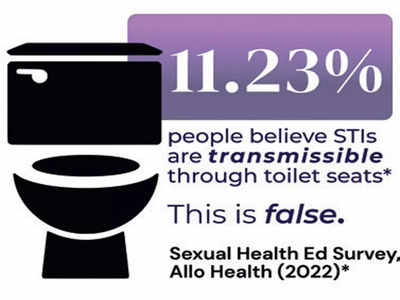People walk along Ocean Drive during spring break on Saturday, March 11, 2023, in Miami Beach.
MATIAS J. OCNER
Spring break is here and it’s expected to surge starting Thursday night, fueled by St. Patrick’s Day on Friday and drunken partiers throughout the weekend.
The crush of college students looking to let loose with booze, weed and other substances can lead to crowded urgent care centers in Miami-Dade and Broward counties. Baptist Health of South Florida has treated many spring breakers over the years and has noticed an increase in certain injuries during the March madness.
Here are the five most common injuries and diseases Baptist doctors see during spring break, according to Dr. Ladan Pourmasiha, director of Baptist’s urgent care centers.
Alcohol poisoning
No surprise here. Parties, bar hopping and St. Patrick’s Day festivities in Miami Beach, Brickell, Wynwood and Fort Lauderdale can make it easy to wake up with a hangover, or worse, alcohol poisoning, which can affect your breathing, heart rate, body temperature and potentially lead to a coma and death, according to the Mayo Clinic.
“The biggest misconception, especially for our young adults, is that they think that they’re being hydrated by alcohol. That’s not the type of hydration that we’re speaking of, especially if you’re out in the sun and at the beach, you actually need more water” because of sun exposure and sweating, said Pourmasiha.
If you’re planning to drink more than usual, one of the best ways to reduce your hangover chances is to stay hydrated, starting at least 24 to 48 hours before drinking.
Also pay attention to what you’re eating. Instead of burgers and fries, eat “nutrient-density” foods like bananas, apples, spinach, nuts or chickpeas, which have fewer calories, but more nutrients. That’s the advice Dr. Michelle Pearlman, CEO and co-founder of Prime Institute in Fort Lauderdale, has previously given to the Miami Herald.
If you, or someone you know, start to show signs of significant nausea, vomiting, irregular breathing, blue-tinged skin or pale skin, can’t keep down liquids, have a faster heart rate, blood pressure has dropped or a severe headache, you should speak with a doctor immediately, according to the Mayo Clinic. And if a person is unconscious or can’t be awakened, seek medical care immediately.
READ NEXT: What time is last call at South Beach nightspots? What to know about changes in the law
A crowd of people dance on Ocean Drive during spring break on Saturday, March 11, 2023, in Miami Beach, Fla. MATIAS J. OCNER [email protected]
Sexually transmitted infections
If you’re planning to hook up and have your own private party, you need to take precautions to reduce your risk of pregnancy or of getting a sexually transmitted infection or disease. Use a latex condom, for one, if you’re planning to have sex, said Pourmasiha.
You should also talk with your partner about his or her sexual medical history to see if they were recently tested, and what the results were, before you have sex with them. And once you have your fun, make sure to get tested for STIs such as gonorrhea, chlamydia and syphilis. There are clinics that provide confidential and free or low-cost testing.
However, keep in mind some STIs can take months to show up on a test, while others can take days. HIV, for example, can take three months, while it can take days to a few weeks for gonorrhea, chlamydia and syphilis to show up on a test, according to Planned Parenthood. (Medical News Today has a testing table for common STIs.)
And if you think you’re immune from getting an STI, think again. In 2021, there were 2.5 million U.S. cases of sexually transmitted diseases — chlamydia, gonorrhea, syphilis and congenital syphilis — a trend that has been increasing in recent years, according to the Centers for Disease Control and Prevention.
Oh, and if you were wondering, STI (sexually transmitted infection) and STD (sexually transmitted disease) mean the same thing: an infection that gets passed during sex. Healthcare providers are starting to use the term STI more because it’s “more accurate and less stigmatizing,” according to Planned Parenthood, though some places might still use STD as it’s the term most people know.
Crash injuries
Miami is always in gridlock and there’s a lot of road rage. Driving under the influence is also dangerous. All of this can lead to crashes with injuries.
In March 2021, a two-car crash near Palm Island led to the closure of the MacArthur Causeway’s westbound lanes and a 1-year-old, 2-year-old, a pregnant mother and the father all transported to Jackson Memorial Hospital, along with one of the drivers. The family was at a bus stop.
READ MORE: Pregnant mother, toddlers injured in MacArthur Causeway crash. MacArthur completely closed
People watch a concert at Lummus Park during spring break on Saturday, March 11, 2023, in Miami Beach, Florida. MATIAS J. OCNER [email protected]
Mono and upper respiratory infections
Kissing and sharing drinks can lead to infectious mononucleosis, or mono. Nicknamed the kissing disease, it’s common among teens and young adults, especially college students.
It spreads through bodily fluids, like saliva, though it can also spread through blood and semen, according to the Centers for Disease Control and Prevention. Most commonly caused by the Epstein-Barr virus, it can take four to six weeks after infection for you to experience symptoms.
Symptoms include sore throat, fever, extreme fatigue, a rash, swollen lymph nodes in the neck and armpits and head and body aches, according to the CDC.
You can protect yourself by not sharing drinks, food or personal items, like toothbrushes, with people infected with mono.
“The most important thing to do is to know your surroundings and to know your closest medical care facility in advance,” Pourmasiha said. And when it comes to having sex with others, make sure you stay wise and make the right decisions to reduce your risk of getting a sexually transmitted illness. And if you’re planning on drinking, have a designated driver or call a rideshare.
Spring breaker Eliakim Brown, 23, of Florida National University catches a pass on a crowded section of South Beach on Thursday, March 17, 2022. Al Diaz [email protected]
Booze and sunburn, skin cancer
Vacationing at the beach is great for R&R. But make sure you lather on sunscreen regularly and control how much you drink.
Drinking alcohol while sunbathing can increase your risk for sunburn and skin cancer. People who drink regularly have lower concentrations of beta carotene, antioxidants that help protect the skin against dangerous ultraviolet rays from the sun, studies have found.
Plus, not only are sunburns painful, but repeated sunburns can increase your risk for skin cancer and also age your skin faster (photoaging), leading to deep wrinkles and dry, rough skin, according to the Mayo Clinic.
To reduce your risk of sunburn, dermatologist Anna Chien of Johns Hopkins School of Medicine recommends applying sunscreen every two hours. The Mayo Clinic recommends applying sunscreen more often if swimming.
Your sunscreen should be water-resistant, and have an SPF of at least 30. It’s also a good idea to reduce your sun exposure between 10 a.m. and 4 p.m., which is when the sun’s rays are the strongest.
And remember to stay hydrated.
This story was originally published March 16, 2023, 12:19 PM.
Michelle Marchante is the Miami Herald’s Health Reporter. She previously covered all things Florida for the Herald as a Real Time/Breaking News Reporter. She graduated with honors from Florida International University, where she served as the editor-in-chief of Student Media PantherNOW. Previously, she worked as a news writer at WSVN Channel 7 and was a 2020-2021 Poynter-Koch Media & Journalism fellow.
Discovered on: 2023-03-16 16:19:01
Source: 5 most common illnesses in Miami during spring break


